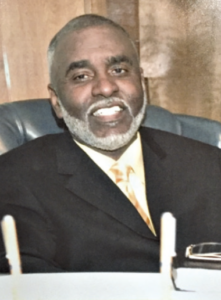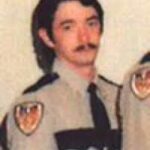 When Dexter Moragne was 23 years old, a friend of his arranged for him to serve as a guest pastor at St. Luke Baptist Church in Covington.
When Dexter Moragne was 23 years old, a friend of his arranged for him to serve as a guest pastor at St. Luke Baptist Church in Covington.
Growing up in South Memphis, Moragne was a city guy. Coming to speak at a rural church and seeing how they did things was an eye-opening experience.
“It was a culture shock from a city church to a rural church,” says Moragne. “I said, ‘Wow, what did I come to?'”
Despite the differences, something clicked. He took on the role as full-time pastor a short time later and Moragne, now 59, has been there 26 years.
“I had no idea I was going to stay there that long,” says Moragne. “It’s been a marriage ever since.”
Pastors are generally an itinerant sort, moving from church to church.
So why has a man who grew up in Memphis stayed in Tipton County so long?
“You get connected. A generation of kids have come up under my leadership. That’s made me want to stay. I still see some fruit that can be developed in this area … I would never go to a city church now because of economics or whatever. When you get a bond with people, it’s a bond that’s established with a pastor.”
St. Luke, with a congregation between 400 and 500 people, is one of the largest churches in Tipton County. One of Moragne’s points of emphasis is helping the community.
The church runs a food bank that distributes groceries to members of the community once a month. He has proclaimed 2016 as the year of restoration and service. St. Luke works with the Memphis Union Mission, which helps the homeless and drug-addicted, as well as LeBonheur Children’s Hospital and St. Jude Children’s Research Hospital.
“We want to serve more, not just inside the walls of church, but outside,” Moragne says. “Right now, there’s excitement in the air because people want to serve. It’s not just about sitting in the church and worshiping. It’s about being servants of Christ.”
Through the church’s outreach program, St. Luke members work with people of different races, something that is not always the case with churches.
“I like diversity in church and ministry,” Moragne says. “I’m open to ministry with any other ethnic group in this community because I think we get more work done if we bond together. We all have the same cause.”
About a year and a half ago, Moragne was presented with a different way to spread his message. He was approached by officials at West Tennessee State Penitentiary in Henning about serving as a psychiatric chaplain. Since Moragne retired from the United States Postal Service after working there 35 years, he had the time and jumped at the chance.
He works at the prison just about every day and serves quite a different kind of person than he encounters at St. Luke. The prison houses maxim and minimum security inmates, including many who are serving life sentences for murder and other felonies.
Some might wonder why he would work with these kinds of people. For Moragne, the reason is simple: He lives the mantra of what would Jesus do?
“Look at the role and what his mission was all about. My role cannot be different from his if I’m preaching his gospel. I have to have love for that person irregardless of what he or she did. My job is to try and rehabilitate him to make him change … They have needs just like people on our side have.”
Although he’s been working at the prison for just 18 months, he’s seen plenty of success stories. One in particular sticks out.
A man who was convicted of attempted rape when he was in high school was recently released from West Tennessee State Penitentiary after 25 years behind bars. The guy was a football star in high school and came from a poor family.
The man now owns a business in Nashville and is doing well.
“When I met him he had changed his life concept,” Maragne said. “I don’t expect him ever to come back.”
And that is Moragne’s primary goal at the prison: don’t come back. He counsels inmates individually, speaks to groups, teaches classes and holds Bible studies. Moragne gets men who have been released to come back and give their testimonials and also arranges tours for school-age children as part of the “Don’t Follow Me” program.
Moragne also organizes a re-entry program for inmates who are due for release within two years. He works with businesses other parts of the community to help with job placement.
“If we can get that man a job, maybe he won’t go back to selling drugs or being a murderer.”
Growing up in an urban environment and working at a prison, Moragne has been exposed to a wide variety of people. That experience is something he draws on as a pastor.
“I may never see it in my lifetime, but hopefully we can eventually get to a place in life where can bring our lives together as ethnic groups where we can not only worship together, but serve together.”






Leave a Reply